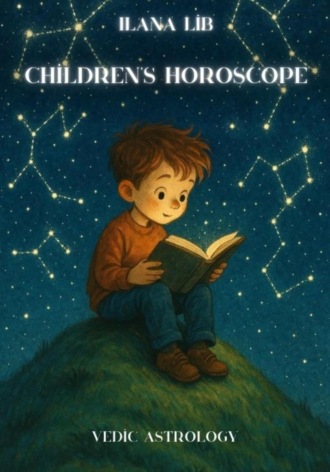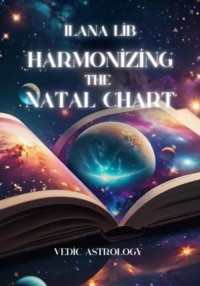
Полная версия
Children's horoscope
Compliments for Aquarius: “Your ideas are so unusual and interesting, you are incredible, as if you came from the future.”
Ascendant in Pisces in a Child’s Natal Chart

Pisces is a water sign, ruled by Jupiter. These are often dreamy, romantic, gentle children who express themselves vividly in certain areas and dislike exerting effort. If they find it difficult to relax and dream, they need to be taught how.
Such children will enjoy and benefit from listening to heartfelt, kind fairy tales featuring spiritual and moral heroes.
They are soulful children who sympathize with others’ grief. They tend to notice the good qualities in people, while ignoring the bad ones, such as anger and envy. Parents should ensure that others do not take advantage of the child’s kindness, as they are unable to refuse anyone. Teach your child to notice the negative traits in people and to understand others; otherwise, they will waste time on unworthy individuals who may ruin their life, and by the time they realize it, it might be too late. Teach your child to say “no” to those who like to use others.
Such children are very sensitive, avoid conflicts, and need moral support in situations where they fail to find mutual understanding with others or face aggression.
Pisces may be impractical, lack leadership qualities, and have poor time management. They may be unwilling to do work that does not interest them or conform to general rules.
It is important to help the child choose a hobby and not let them become lost in contradictions. Parents should check each stage of the child’s work to ensure they finish what they start without getting distracted by something trivial. All this should be done gently (otherwise the child will stop trusting you), as Pisces do not like pressure, rules, or control.
Subtly and by personal example, parents should teach the child to follow a daily routine—getting up and going to bed on time, leaving home early enough not to be late for kindergarten or school, having breakfast, lunch, and dinner at set times, and not postponing homework until late at night.
Ask the child to tell you about their dreams and fantasies. You can invent stories together.
Compliments for Pisces: “You have a wonderful imagination, you are observant, kind, generous, and extraordinary.”
Houses in a Child’s Natal Chart
A child with two or more planets in the third or ninth house of the natal chart possesses a stronger motivation for intellectual development – these can be any planets.
First House (Ascendant) – how the child perceives the world, potential abilities and talents, manner of behavior.
Second House
Конец ознакомительного фрагмента.
Текст предоставлен ООО «Литрес».
Прочитайте эту книгу целиком, купив полную легальную версию на Литрес.
Безопасно оплатить книгу можно банковской картой Visa, MasterCard, Maestro, со счета мобильного телефона, с платежного терминала, в салоне МТС или Связной, через PayPal, WebMoney, Яндекс.Деньги, QIWI Кошелек, бонусными картами или другим удобным Вам способом.









